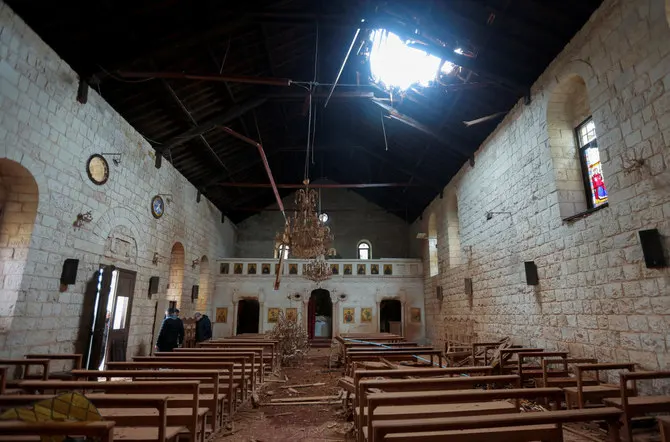People in southern Lebanon who fled last month have rushed home to inspect damage during the temporary truce in the war between Israel and Palestinian group Hamas that they hope will end the worst border clashes in nearly 20 years.
Negotiators are urging Israel and Hamas to extend the six-day cease-fire in a conflict which has sent shockwaves around the region since Oct. 7, spilling across the Lebanese-Israeli border where Israel and Iran-backed Hezbollah have been trading fire.
Some 200 km (124 miles) from the Gaza Strip in southern Lebanon, people in areas scarred by Israeli shelling were grateful that they had been able to return home since Friday, when the cease-fire between Israel and Hamas came into effect.
“We are very happy to have returned to the village,” Mbadda Salloum, a resident from the village of Yaroun, said outside a church damaged in the recent hostilities.
He had fled north with his family to the capital, Beirut.
“We wish for this truce to be permanent, God willing.”
With Israel launching air and artillery strikes and Hezbollah firing rockets at Israeli positions on the frontier, it has marked the worst violence at the Lebanese border since Hezbollah, a Hamas ally, and Israel fought a war in 2006.
Many families are using the pause in fighting to collect belongings from their homes and survey damage. Schools and most shops are shut.
About 55,500 people across southern Lebanon had fled their homes as of Nov. 21, according to the United Nations. Many also fled their homes in northern Israel.
“They have missed their homes and their lands,” said Kassem Jaber, mayor of the village of Mhaibib. People had been waiting on the village outskirts till just after 7 am last Friday when the truce took effect, he said, then rushed back to their homes.
Huge chunks of walls were missing, windows were shattered, and piles of broken dishes and furniture were strewn across the living room of villager Amal Jaber.
“The buildings are not important, we care about the people (who have died),” she said.
Israeli attacks have killed about 100 people in Lebanon — 80 of them Hezbollah fighters — since Oct. 7.
Mayor Jaber said that although no one in his village had been killed in Israeli strikes, homes had been destroyed and villagers were unable to harvest their olives. They had also missed out on planting next season’s crops.—Reuters










